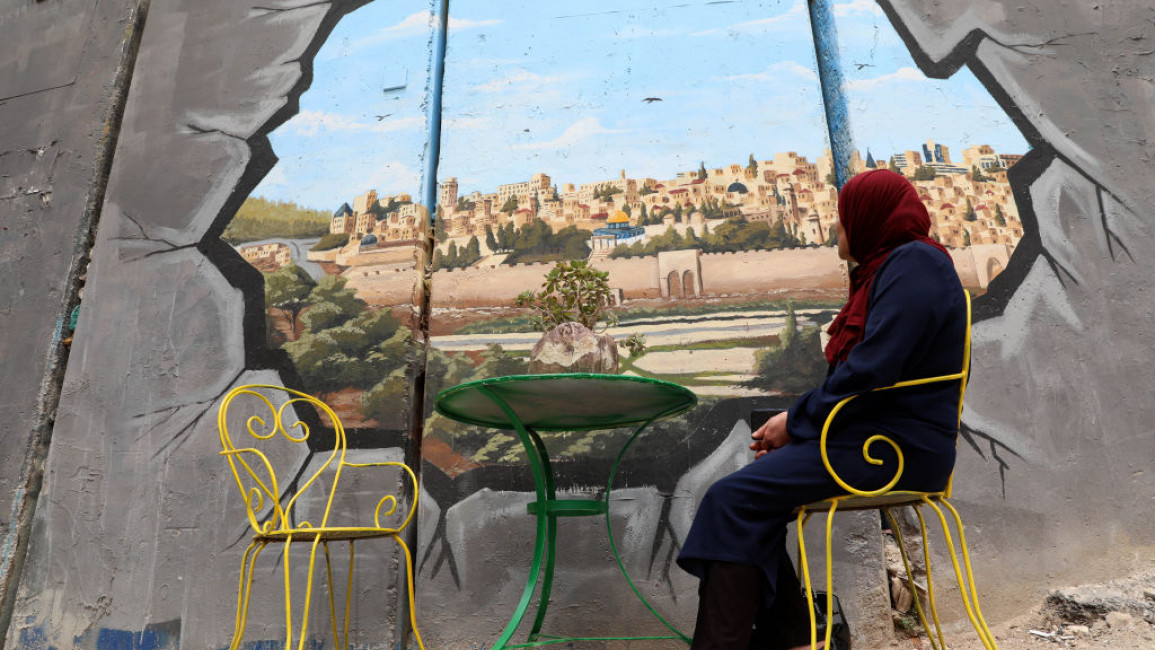
Israel’s idea of ‘co-existence’ is colonisation
My favourite Palestinian city is Akka, a true royal beauty that I think of as Jerusalem by the sea. It is an ancient city filled with rich history serving as a mystical multi-faith port for thousands of years.
Many people used to come to the land by way of Akka - sometimes referred to as “the Key to the Holy Land”. It is even said that Cleopatra hosted her wedding here as it was both revered for its beauty and convenient for people to attend from all over the region.
To me as a Jewish person, this city holds special significance. Many Kabbalists came here after they were expelled from Spain and started centres of Jewish mystical study.
''The Israeli stores that fill the old city are pens that extract and appropriate Palestinian culture and tradition. For example, Arabesque is a hotel with an art residency that celebrates Arab aesthetics - from the food they serve, to the art designed throughout the space. Yet it is owned and run by Ashkenazi Israelis who do not have any Palestinians on the team as collaborators or artists.''
I can honour this city for its connection to Judaism and at the same time critique the ongoing colonial project of Palestinian displacement.
Walking through the old city of Akka is quite jarring as the gentrification confronts you directly. On one hand, expensive new Israeli art stores line the walls; on the other, Palestinian homes are struggling to survive.
Israel praises cities like Akka for being “Mixed Cities” - hubs of coexistence where Jews and Arabs live together. But is this really a shared society when the Israeli understanding of coexistence is predicated on the theft of Palestinian land, and dominance over Palestinian life?
The Israeli stores that fill the old city are pens that extract and appropriate Palestinian culture and tradition. For example, Arabesque is a hotel with an art residency that celebrates Arab aesthetics - from the food they serve, to the art designed throughout the space. Yet it is owned and run by Ashkenazi Israelis who do not have any Palestinians on the team as collaborators or artists.
Another example is Art 192, an art shop celebrating Galilee women who make art. But, of course, none of the women included are Palestinian. Oroca is another art store, marketed as “Authentic Israeli”, without any mention of the appropriation of Palestinian culture at its core.
The Old City of Akka is small, with a local traditional market place selling foods and other goods, but when you leave you are confronted with modern, commercial and mass produced stores.
Not only has this city suffered from colonisation and ongoing displacement of the local Palestinian natives, it also highlights the theft and appropriation of Palestinian art, tradition and identity.
Of course, one cannot help noticing the parallels between Akka and Jaffa - another port city known as Arus al Bahar, or Bride of the Sea. While Jaffa is at a much later stage of violent gentrification, Akka is still in the beginning.
Mixed cities like Akka have been praised for their coexistence paradigm, promoting peace in the region. But are these cities truly a beacon of coexistence?
During the uprisings of May 2021, Israelis were shocked to discover that Palestinians in the mixed cities were rising up, because Israeli consciousness truly believes the myth of coexistence. The dynamics of these cities are founded on displacement, gentrification, theft and dominance. The Unity Intifada showed that even outside of the West Bank and Gaza, Palestine is still under violent colonial attack.
It is time to dismantle the narrative of coexistence. As long as Israel continues its apartheid regime with continuous human rights violations, we cannot engage in peace initiatives. Our focus needs to be on dismantling apartheid and decolonizing.
Hadar Cohen is an Arab Jewish multimedia artist, healer and educator based in Los Angeles. She is the founder of Malchut, a mystical school teaching direct experience of God through heart centered spiritual traditions. Hadar is a Jewish mystic who works to build decolonial frameworks for worshipping God. She is an artist weaving the spiritual with the political and her artistic mediums include performance, movement, writing, weaving, sound and ritual.
Follow her on Instagram/Twitter: @hadarcohen32
Have questions or comments? Email us at: editorial-english@newarab.com
Opinions expressed in this article remain those of the author and do not necessarily represent those of The New Arab, its editorial board or staff.




